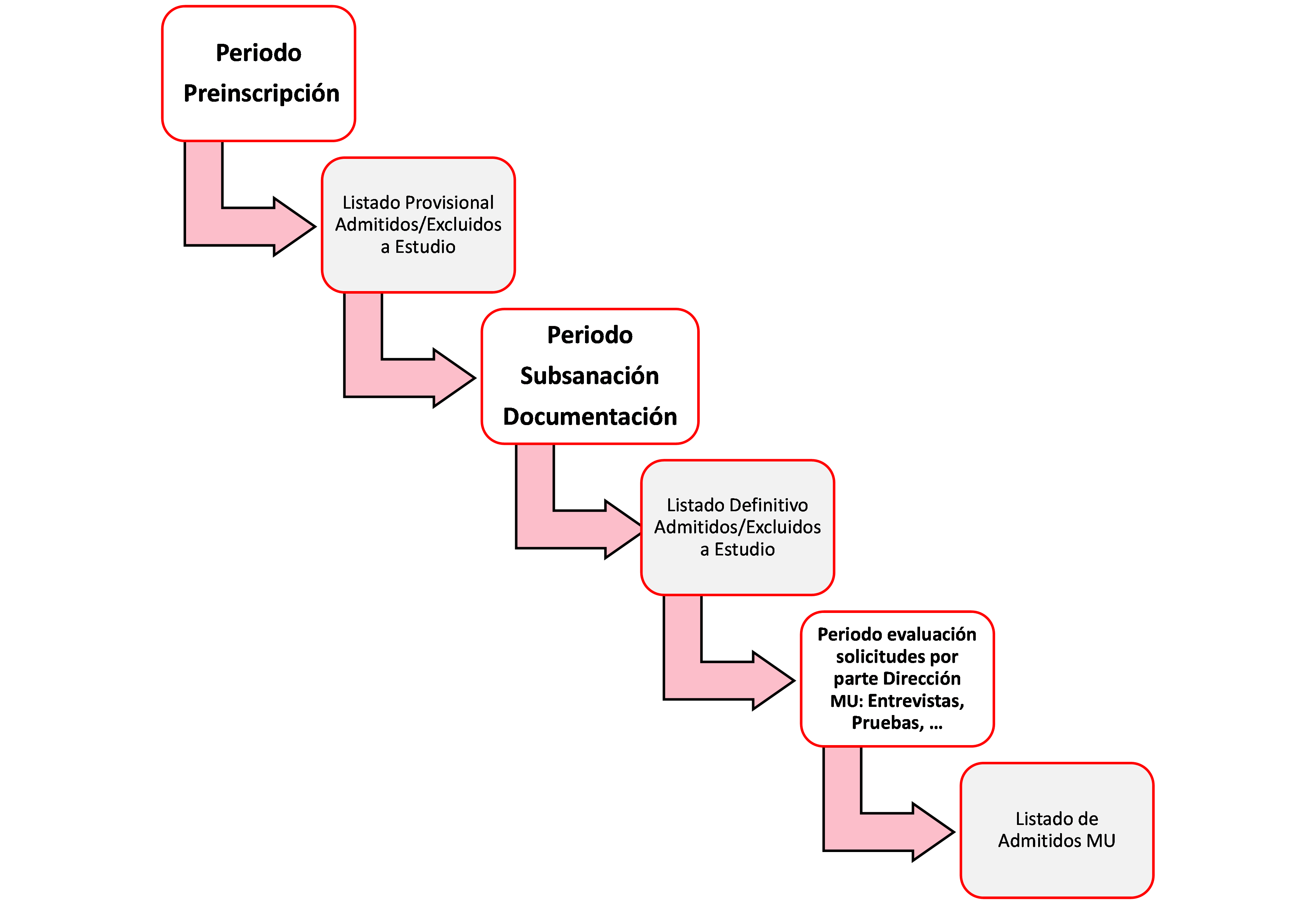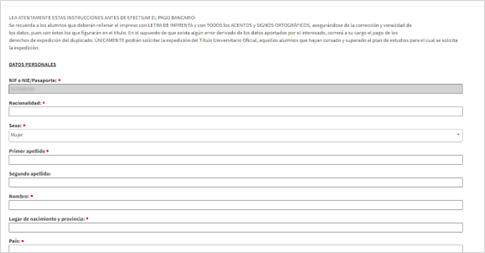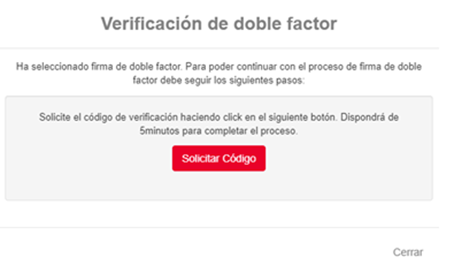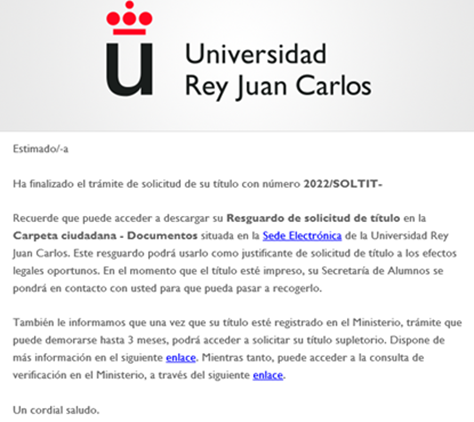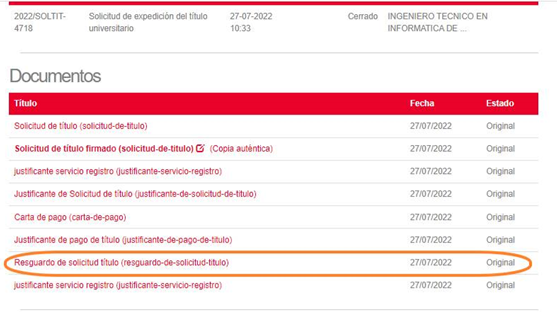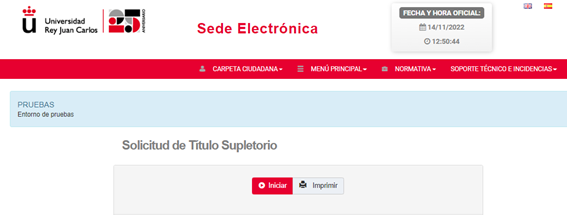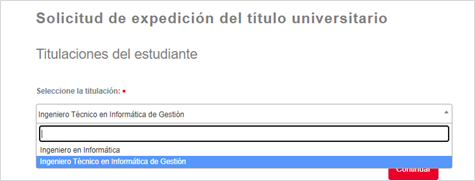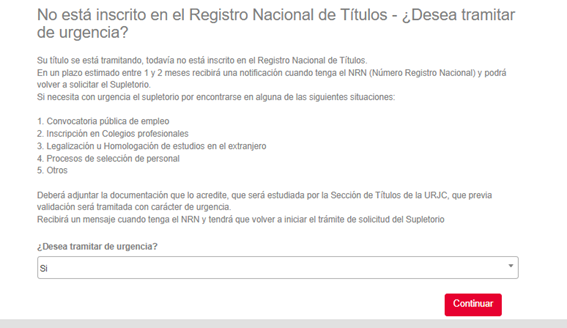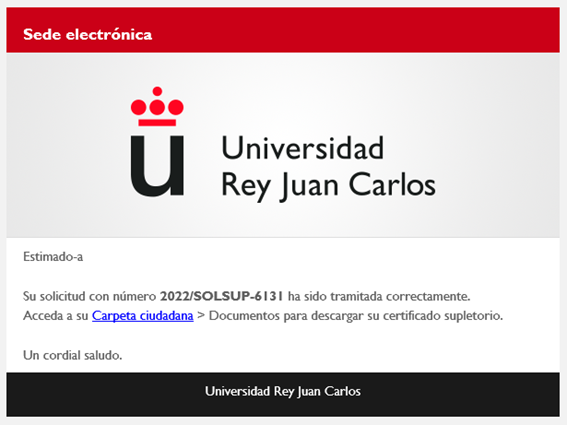Si ya has sido notificado de que tu título de máster está disponible, puedes solicitar su envío solo si resides fuera de la Comunidad de Madrid previo abono de las tasas de remisión, a la Delegación o Subdelegación del Gobierno u Oficina Consular / Embajada más cercana a su lugar de residencia. Puede consultar las oficinas disponibles en los siguientes enlaces:
Consulados: https://www.exteriores.gob.es/es/EmbajadasConsulados/Paginas/index.aspx.
Delegaciones de Gobierno: https://www.mptfp.gob.es/portal/delegaciones_gobierno/delegaciones.html
¿Cómo solicitarlo?
Puedes solicitar el envío de tu título a través del siguiente procedimiento.
MUY IMPORTANTE: NO SE REMITIRÁN TÍTULOS A DOMICILIOS PARTICULARES NI A OTROS LUGARES QUE NO SEAN DELEGACIONES O SUBDELEGACIONES DE GOBIERNO O EMBAJADAS O CONSULADOS. SI LA DIRECCIÓN APORTADA PARA EL ENVÍO NO ES CORRECTA NO SE REMITIRÁ TÍTULO ALGUNO.
Puedes solicitar el envío de tu título a través del siguiente procedimiento: https://sede.urjc.es/catalogo-de-servicios/ENVTIT/
El importe se establece en el Decreto de Precios Públicos vigente en cada curso académico y son los siguientes:
|
A ESPAÑA |
20 EUROS |
|
A PAÍSES DE LA UE |
40 EUROS |
|
A PAÍSES EUROPEOS NO PERTENECIENTES A LA UE |
50 EUROS |
|
AL RESTO DE PAÍSES |
55 EUROS |
Recuerda:
No se envía a domicilios particulares, solo organismos oficiales, tales como Delegaciones del Gobierno y Subdelegaciones fuera de la Comunidad de Madrid y Consulados y Embajadas Españolas fuera de territorio nacional.
Asegúrate de que en dicho organismo recepcionan y entregan documentación oficial.
*CONSULTA DELEGACIONES: https://www.mptfp.gob.es/portal/delegaciones_gobierno/delegaciones.html
**CONSULTA EMBAJADAS: https://www.exteriores.gob.es/es/EmbajadasConsulados/Paginas/index.aspx



